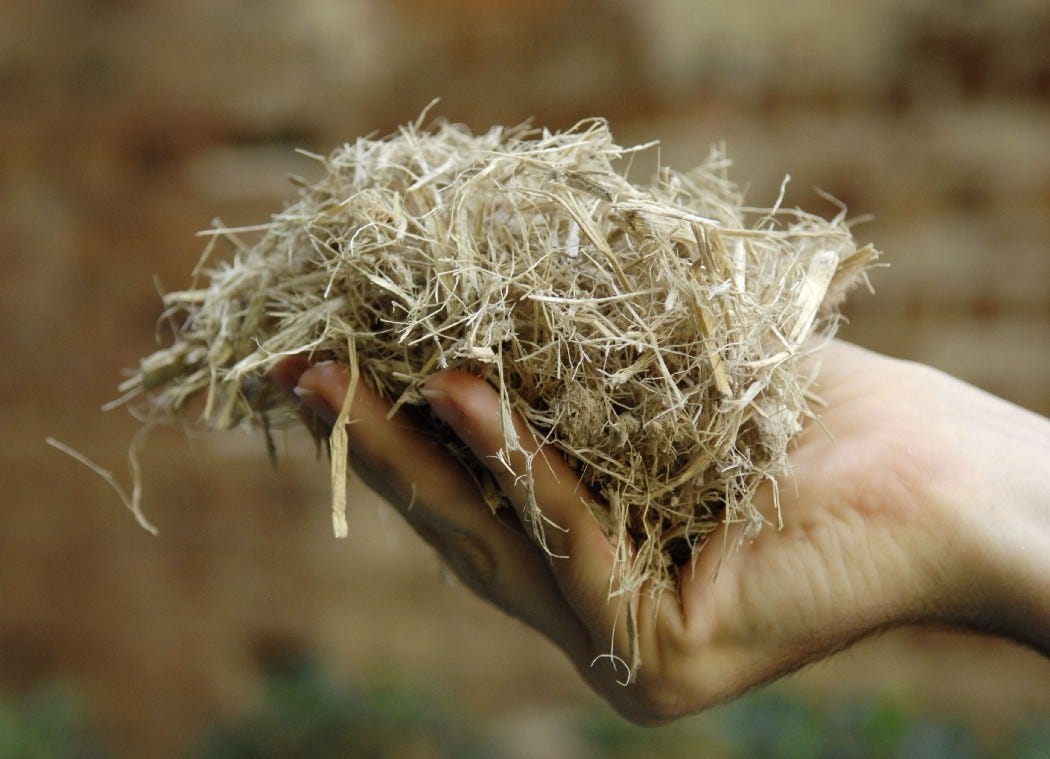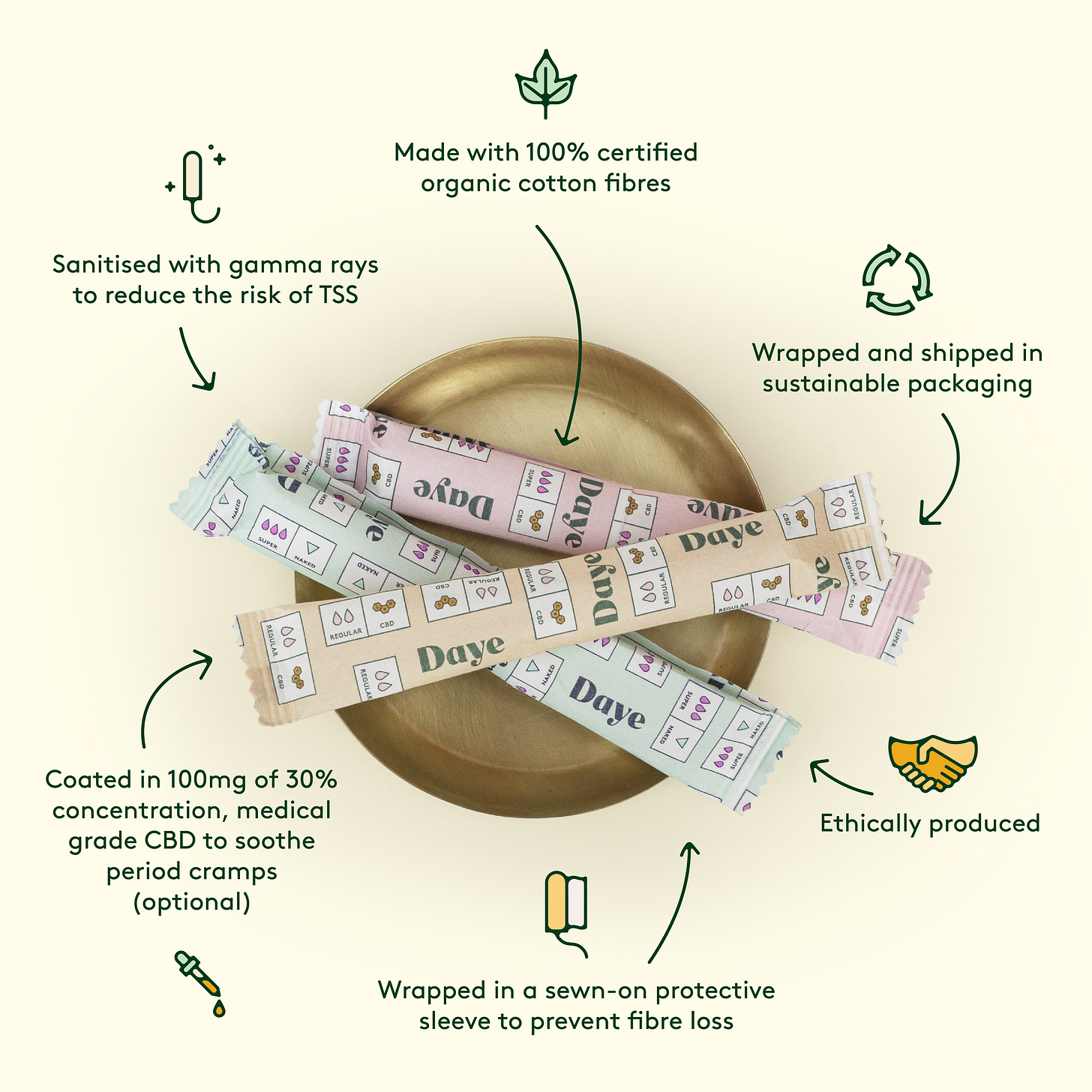🌱 The Benefits of Bagasse: Circular Packaging Can Be Pretty Sweet.
Featuring Nibs etc.
Happy Friday!
What we’re covering this week:
How one London-based startup is converting pulp into product.
Why bagasse can help you champion a more circular economy.
In case you missed it: Daye's determined to leave an impact, not a trace.
> Good News This Week
🎯 Co-op, Hubbub and Marcus Rashford have teamed up to promote an expanded community fridge network, re-distributing 6.8 million meals a year, following a £500,000 funding boost from Co-op.
🎯 HelloFresh has committed to setting up three plastic collection centres in Indonesia, working with Plastic Bank to recover 1.6 million pounds of material over 3 years, and supporting over 560 families living in poverty.
🎯 Nando's has announced its plans to be carbon neutral across Scope 1, 2 and 3 by November 2021. This follows targets to reduce the footprint of the average Nando’s meal by 50% by 2030, after already achieving a 40% reduction since 2015.
⭐️ Mattel, Inc. have launched a toy take-back program where families can send back old toys to be re-used.
⭐️ Unilever aims to sell all toothpaste in recyclable tubes by 2025, making the innovation available for other companies to use.
⚡️ 3BL Media published their 100 BEST CORPORATE CITIZENS OF 2021 list, evaluating the largest public U.S. companies on ESG transparency and performance.
> Click on each item to read more.
> Brand Spotlight
Nibs etc. are Champions of the Circular Economy
Introducing nibs etc., a sustainable snack brand on a mission to “redefine the concept of ‘waste’”and reduce the amount of food bound for the bin. Established from a blog originally covering food waste, nibs etc.’s product range includes granola, cookies, and bars - all containing pulp. A byproduct of juicing, the pulp is sourced from London-based juice bars and contains the skin, seeds and stems of fruit and vegetables.
By up-cycling this ‘waste’, nibs etc. are preventing the nutrient-rich from going to waste. This decreases the resource expenditure required to produce nibs etc.’s products by a third, paving the way for a more circular production model. To date, nibs etc. have saved 2 tonnes of pulp from the heap. If this wasn’t enough, their packaging is made from grass paper and a compostable film made of bagasse - a ‘waste’ product of cane sugar production. Nibs etc. value transparent suppliers and source organic, local produce where possible - achieving great taste and great impact, on budget.
What can brands learn? Nibs etc.’s mission, sourcing model and choice of packaging minimises their carbon footprint, and leads us one step closer to a more circular economy. Struggling to source more sustainable ingredients? Go local and stop landfill, if you can.
Want to try out nibs etc.? Shop them below:
Haven’t subscribed to Following the Footprints yet?
> Quick Take
The Benefits of Bagasse Are Pretty Sweet.
Inspired by nibs etc., this week we’re taking a quick look at food packaging made from bagasse - the fibrous ‘waste’ residue of cane sugar production. Bagasse is a more environmentally friendly alternative to paper because of its short, carbon-capturing growth phase to harvest cycle (1 year vs 20 years). In production, its simplistic fibrous structure requires less resources (water, energy and chemicals) than paper.
Bagasse products can be recycled - providing they are free of food residue - or composted at home or industrially. Composting can improve soil quality and resilience, as well as water retention ability. It degrades quickly in approximately 90 days, unlike its synthetic counterparts of plastic (400 years) and styrofoam (never). Thanks to naturally occurring oils, bagasse products are leak proof and remove the need for polylectic acid (PLA) lining - an un-recyclable resin made from corn starch. On top of that, bagasse packaging is durable and boasts strong heat and cold retention properties making it ideal for food holding.
Why consider bagasse for your brand? The monumental benefit of bagasse is that it already exists as a by-product of cane sugar production. Up-cycling this leads to a more circular supply chain, which reduces waste and avoids methane production by degradation. Transitioning away from paper-related products towards bagasse will reduce your CO2e emissions and
Interested? Check out bagasse suppliers for your brand:





